Today you are going to discover the most neglected muscle building strategy for calisthenics beginners.
(“It’s the thing you do 33% of your life”)
Sleep.
Specifically, you will discover:
- why sleep can help you lose fat;
- why too little of it has the same negative effects on your brain’s performance as drinking alcohol;
- and why you should prioritise it if you want to progress faster and be protected against the flue.
Let’s jump right in.
- 1. Why poor sleep increases your chances of getting fat
- 2. Why poor sleep might make you lose 60% more muscle
- 3. Why good sleep makes you feel better, benefits your cognition and athletic performance
- 4. Why poor sleep has a similar effect on performance as alcohol consumption
- 5. Why poor sleep might increase your levels of pain
- 6. Why good sleep protects you against the flue
- 7. 8 simple tips to improve your sleep
Why Poor Sleep Increases The Chances Of You Getting Fat
Don’t sacrifice with your sleep if you want to lose fat.
Why?
Because lack of sleep is one of the strongest risk factors for obesity.
Research shows that lack of sleep increases hunger which in turn can lead to an increase of energy intake from different foods or something we would normally call ‘overeating’ (1, 2 ,3).
This even holds when different factors such as lifestyle, work and health are taken into account (4).
People who sleep better on the other hand tend to consume less calories during the day (5)
Key Takeaway: If you are lacking in sleep your increased sense of hunger and loss of appetite control can result in overconsumption of foods that subsequently increase your chances of overweight.
Why Poor Sleep Might Make You Lose 60% More Muscle
Why sleep more for more lean gains?
Well, here is why:
Reducing your sleep from 8.5 to 5.5 hours will make you lose up to 60% more muscle when in a caloric deficit (5).
So if you want to get lean and have a shiny six pack, better sleep well.
Key Takeaway: If you are cutting weight while being sleep deprived it might make you lose more muscle.
Why Good Sleep Makes You Feel Better, Benefits Your Cognition And Athletic Performance
Wonder why you always feel so crappy after a short night of sleep?
Well, you aren’t the only one.
Research shows that restriction of sleep produces the same brain wave patterns sometimes observed in depression (6, 7).
Not only do you feel worse, your ability to solve problems is reduced too (8).
Research on athletic basketball players for example showed that better sleep improved speed, accuracy and mental well-being (9)
You might wonder why you still feel bad and perform bad after training your ass off and eating right.
Well, if those two things happen at the expense of good sleep you might have found the reason for it.
Key Takeway: If you are feeling bad, notice a sharp decrease in performance and have a foggy mind, start by carefully assessing your sleep quality first.
Why Poor Sleep Has A Similar Effect On Performance As Alcohol Consumption
So you don’t drink alcohol, but you sleep 3-5 hours a night?
Might as well have some beers to celebrate that achievement, because sleep deprivation has similar effects as alcohol consumption.
Reducing your response speed up to 50% and being even worse for accuracy (10).
Key Takeaway: If you want to improve your general performance, put sleep at the top of your priority list.
Why Poor Sleep Might Increase Your Levels Of Pain
Being sore after a good workout might feel like a good thing.
But is it really?
Actually muscle soreness is not an indication of a ‘good training’, in reality the opposite can be true.
What does this mean?
Rather than focusing on how sore you are, improve how fast you recover.
Not only does sleep aid in recovery, it influences daily fluctuations in pain (11).
Even a single night of too little sleep can increase pain your response.
Key Takeaway: If your feel terribly sore during and after your training, getting a good night of sleep might not only decrease your sensation of pain after your training, but also during your training.
Why Good Sleep Protects You Against The Flue
A small amount of sleep loss results in lower levels of protection against the common cold (12).
In one study, they found that people who sleep less than 7 hours were 300% more likely to develop a cold than people who slept 8 hours (13).
Key Takeaway: If you want to progress fast over a longer period of time, you want to avoid getting sick.
Sleep will not only protect you from getting sick. It will speed up your recovery too.
8 Simple Tips To Improve Your Sleep
So with all that talk about the importance of sleep.
How much sleep do you really need?
Well, it really depends on you as a person and your level of activity, but generally getting around 7-8 hours of sleep is recommended for the general public (12).
Now that you know what to aim for…
Here are some of the personal tools I use to improve my sleep and stick to 7-8 hours a night:
- Sleep apps – Track your sleep by using apps like the one I recommend in the 7 days of beast mode e-mail course to get insights into your patterns, habits and sleep quality.
- Blue light detox – Avoid blue light 60 minutes before going to bed by using flux on your devices and candles for light to make sure your body doesn’t think it should be awake.
- Sleep time – Extend your sleep time instead of napping to catch up, because the best way to increase sleep quality is through longer hours of sleep.
- Supplements – Use supplements that improve sleep quality like the ones I recommend in this course to get the extra edge.
- Bed timer – Set a bed time timer to make sure you go to bed on consistent times and get adequate amounts of sleep habitually.
- Sleep environment – Use scents like lavender that improve sleep quality and a silent room to avoid being disturbed.
- Music – Put on relaxing music 30 minutes before going to bed to calm down and prepare for a good night.
- Good-night-to-do list – Spend a maximum of 5 minutes on writing a to-do list for the next day before going to bed to prevent lingering on thoughts.
Even applying 1-3 of these tips might significantly improve your sleep quality and general performance.
Or what we like to call:
‘THE GAINS!’
Make Sleep Your Priority And Improve Your Results
When you realise how BIG the effect of a lack of sleep is, you’ll notice how much progress you’ve been missing out on.
Don’t get me wrong: sleep alone isn’t magic. You still need to put in the work.
But by getting proper amounts of sleep a good training can turn into a great one.
And a painful day after can turn into a less painful day after.
You still have to be patient, consistent and eager, but if you are, sleep can help you build that body you are looking for.
Stop letting your lack of sleep K.O. your results.
Take one on the jaw for now, reset your sleeping habits and punch the guy called ‘sleep deprivation’ back.
Twice as hard.
Right where it hurts him.
After a good night of rest.
*Fist bump*
Now I’d like to hear from you:
Did you like this post?
Or maybe you have a question.
Either way, make sure you get your download and leave a quick comment below right now.
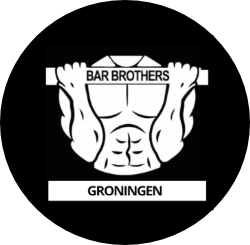
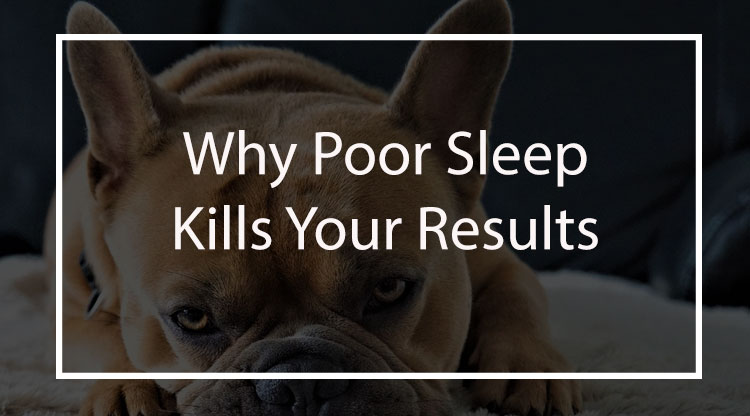
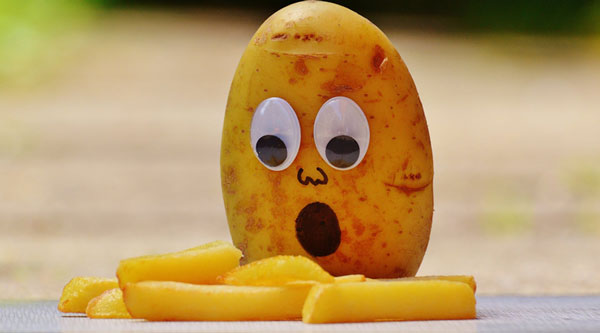
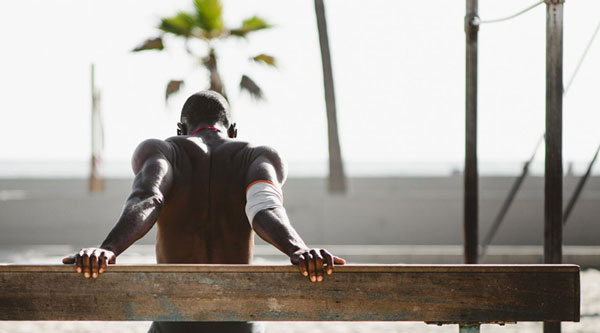
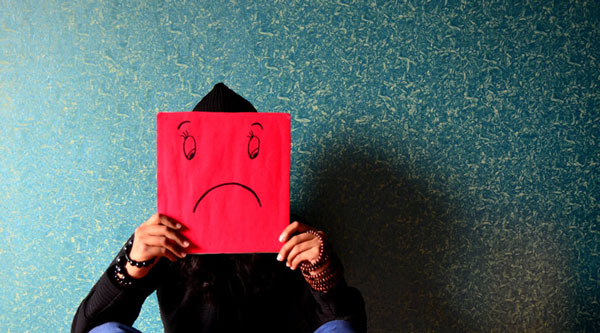

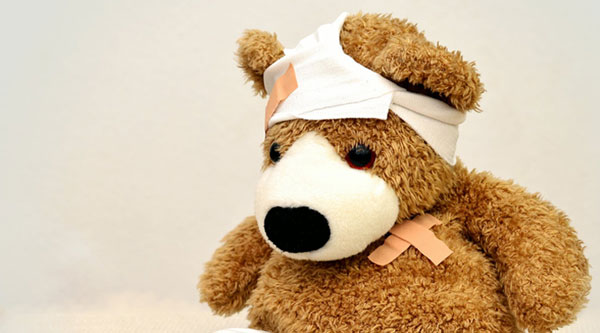
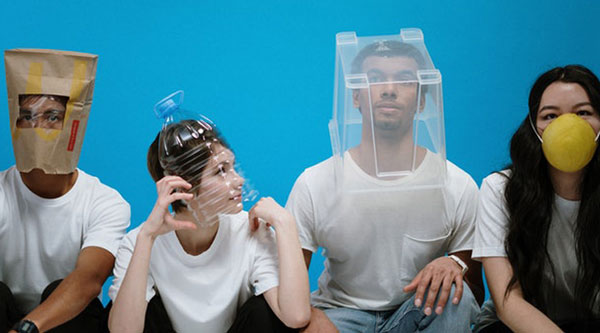
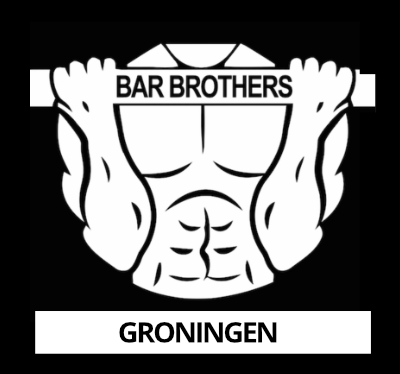
Hi Rich !
Thank you for your webpage, your books and your articles !
They come into my life exactly in the right time and I am really grateful to you for sharing your knowledge.
Greetings from Estonia !
Hey Nurdinbek,
Thanks a lot for your personal comment.
It’s one of the reasons why I keep posting content here, hope this can help you in developing the life you want.
Truly honored by your message.
Keep up the good work my friend.
Beast mode ON!
hi , me and my friend have been following the ” 6 Month Calisthenics Workout Plan For Bar Brother Beginners”
I like the feeling of a good workout but i cant get that feeling everyday . we start the day with a 6am workout , and we make our own natural smoothy which has been our biggest help to recover . I don’t sleep that much , im not used to sleeping while the sun is up . But my friend sleeps as if he has a switch to turn it on and off . I sleep around 11 pm and wake up for the next day workout , but I have difficulty getting up , most of my body will hurt , and my workout doesn’t feel that good . do you think a 1-2 hour sleep after the morning smoothy could help ? I feel like the timespan between a workout and rest is huge for me
Hey Vivek,
Great question!
Nothing beats sleep. You can definitely add an extra nap, but what research shows is that extending your sleep time works better than napping extra. If extending isn’t an option, adding a powernap 20-30 minutes max can definitely be useful.
Keep up the good work.
Beast mode ON!
Hey JR,
Thanks for your ‘significant’ contribution!
Appreciate the additions.
Keep up the good work!
Beast mode ON!
Thanks Rich, it’s always good to reflect on both quality and quantity of sleep, including the detrimental impacts if not receiving proper rest cycles.
As you noted, 7 to 8hrs of sleep appears to be the often cited and gold standard of necessary sleep to perform optimally during wake schedules. However, as we age, some folks may notice that 5 or 6hrs of sleep tend to provide the same results. Personally, I feel best when having at least 6.5 to 7hrs; although ironically, I have found sleeping more than 8hrs makes me feel worse (e.g., muscle aches, headaches, extended grogginess as anecdotally reported by my wife (smile).
Here a few quick tips that I have found to work for my sleep, and may help others a la carte:
1. If possible, refrain from phone, tablet, TV, or any other blue light emitting device at least 1-2hrs before settling down for bed. [Supplemental tip: For those who need their fix for social media, catching up, etc. during the evening hours, you should at least turn your phone to “nightshift”, which automatically shifts the colors on your display to warmer colors to avoid blue light emissions.]
2. As cliché as it sounds, reading a physical book or magazine before bed is a powerful tool to induce sleepiness, which for me, provides a surge of melatonin to knock me out. Plus, you enjoy content consciously, as opposed to mindlessly changing channels on TV. [Supplemental tip: Buy your spouse a book too so you don’t have competing entertainment in the room (e.g., Game of Thrones on TV while you read Game of Thrones).
3. Chamomile Tea. Works great for me unless you have a small bladder. Reason being, studies suggest chamomile flower has natural ingredients to relax muscles and general cognitive fatigue. I actually started this habit while working in Australia in the camp, -when in Rome…
4. Quality time with partner. Ever notice after 10min of listening to your partner vent, you find yourself naturally dosing off? While this may materialize in adverse reaction with your partner, you’ll at least get a good night’s rest (wink). In all seriousness, just talking about the day and reflecting with your partner can assist with not only getting sleepy for both of you, but also improves your communication in your relationship. In other words, you tend to refrain from, “Can we talk about this tomorrow Honey?” Trust me, she wants to talk now… [Supplemental tip: quality time can mean anything, (e.g., playing music, chess, wrestling, etc.).
5. Exercise often and push yourself. Ever notice on non-workout/rest days that you can stay up longer? If not already, incorporate a good exercise regime into your life, your sleep will thank you.
Optional, and perhaps controversial tips:
6. Cell Phone radiation. Yes, there are studies out there that suggest that Radio Frequency (“RF”) radiation could impair sleep quality. There was a study done in 2008 by major mobile manufactures (go figure) that conclude that cell phones near your head, such as next to you on the dresser, can cause insomnia and headaches. I have personally worked in the Telecoms Industry and clearly aware of the potential dangers of too much exposure to RF. Many claim RF from cell phones to be a non-issue, but why even risk it? I mean, wouldn’t it be better to simply move your phone at least 6-feet away from you, or better yet, put your phone on airplane mode each night? Further, there’s been a recent major animal study sadly showing possible links between cancer and chronic exposure to RF. [Supplemental tip: iPhones allow you to turn on airplane mode while simultaneously having Wi-Fi “on”. Most folks have Wi-Fi at home; therefore, no need to keep RF enabled and unnecessary exposure to cell phone radiation.]
7. Melatonin Supplements: Although I don’t take any melatonin supplements, there is scientific evidence that some folks benefit with supplements when their natural ability to produce the hormone is limited. Vitamin D from the sun has shown to help avoid supplementing with Melatonin, though I recognize some folks that suffer with insomnia may need Melatonin to induce sleep in order to function the next day. Of course, consult with your GP for this one.
To finally conclude, sleep is often overlooked as a critical function of our health. In fact, the Centers for Disease Control (“CDC”) estimate 1 in 25 adult drivers have fallen asleep while driving the previous 30 days! More alarming, the US National Highway Traffic Safety Administration estimates drowsy driving was responsible for 72,000 crashes, 44,000 injuries, and 800 deaths in 2003. If you have recently found yourself sleepy at the wheel, pull over and take a nap, you just might save a life. Try this one, it’s better to be late than never arrive.
Hope these tips help others, thanks for bringing up this very important topic.
JR
Hey Rich,
Makes it any difference if it’s summer or winter. Our biological clock works different during those periods because the less or more sunlight.
Martin Bol
Hey Martin,
Great question.
There are some strong indications that vitamin D plays a role in both sleep duration and time to fall asleep. Clearly you’ll get more sunlight in the summer, so there is a difference there.
Other hormones such as melatonin which are affected by light also affect sleep, so there are definitely a wide array of factors that might affect how you sleep in the summer versus the winter.
Beast mode ON1
thanks for the valuable information guys I will start sticking to 7 – 8 hours of sleep as from today – and I will also create a sleep reminder
Hey Lucienne,
More than welcome!
Hope it helps you on your journey.
Beast mode ON!
Rich,
I am not sure if you check comments in your older posts but your latest update mentioned rest, so I dug up this post for more info.
I have lots of trouble sleeping. I do the tricks–no screen time beforehand, get into bed earlier, talk to my partner in the darkness, no beverages right before, and when I remember to I take a 5mg melatonin.
But the sleep doesn’t come. The lack of sleep stresses me out more, and it turns into a snowball effect every night. I wonder “why can’t I just fall asleep?” My mind races.
If I doze off, the smallest sound or movement from my partner wakes me up. I also suffer from hypnic jerks, sometimes as many as 20+ in a single night! Sometimes I read for 15-30 minutes when I can’t fall asleep, but it rarely helps. Or I try doing a countdown from 100, which works maybe 10% of the time. On the nights I fall asleep, I wake up between 2:30-4:30 to use the bathroom and then can’t fall back asleep. The frustration and stress is real! Daytime “catchup” naps are never successful.
Daytime “catchup” naps are never successful.
Lately I get so stressed from it that just take Nyquil. Probably a bad idea, but I just give up. My life isn’t stressful, I am happy with where I am, a supportive family, partner, decent job, stable home… so I don’t think it’s outside stressors. Why doesn’t the sleep come? I even went to a sleep specialist, which didn’t help.
Obviously, this hinders my workouts. Improvements are minimal (still can’t do a muscle-up after 2+ yrs of training with your guides). On workout days I get tired easily. I don’t feel motivated because I didn’t sleep the night before. I recognize the importance of sleep for improving my gains, but it is holding me back.
I have a nice life but the lack of sleep brings so much of it down. I am ranting now… But I figured I’d at least rant in your blog since it has helped me in so many ways before. If you have ANY suggestions in addition to your post, I am willing to try them.
If you have ANY suggestions in addition to your post, I am willing to try them.
Thank you,
Max
Hey Max,
First thing is that it’s great that you ‘are aware’ of ‘the obstacle’. That already changes it. I can fully understand how frustrating it can be, I have had periods of ‘insufficient sleep too’.
It’s a big question however that would require me to ask you more questions for a better picture of the situation. First I would like to emphasize that I am not a sleep professional, so take my advice with a grain of salt. I really like your honesty, it shows how committed you are to what you are doing.
So here is my take:
Sleep is a practice, like anything. Which means both your ‘awake’ time and sleep time are part of ‘sleeping’, so everything you do throughout the day. Leave no stone unturned. If there are no ‘external’ forces hindering your sleep, it becomes an interesting ‘subject for research what actually is’. I can highly recommend the book ‘Why we sleep from Matthew Walker’, although some of it has been debunked it sheds a light on sleep and what potential factors your might be missing in the equation. Another thing that you might want to experiment with (it is a bit pricey) is the Oura ring it’s the closest you will get to ‘becoming a sleep researcher’ in terms of tracking tons of parameters. The thing with finding answers to questions like this is that you somehow need to ‘quantify’ what you are doing, you need metrics to see progress or not and you need to do testing over longer periods of time. The problem is that you often ‘think that you are doing something, even though the opposite is true’. I have seen it over and over in students of mine and in myself. The numbers will ‘narrow’ the gap between expectation and reality.
It is a very individualized thing. No one-size-fits all, only principles.
Hope this helps.
Have a good day!
*Fist bump*